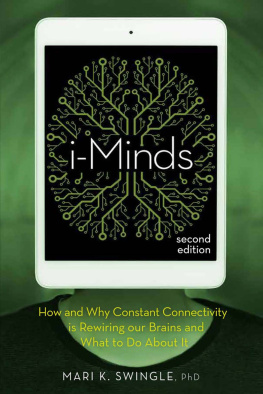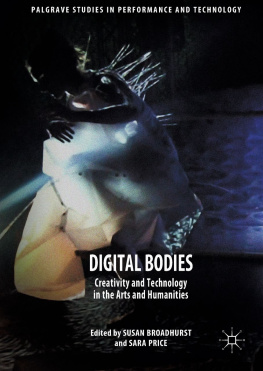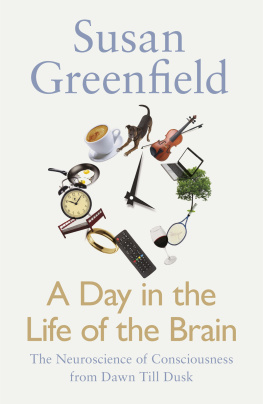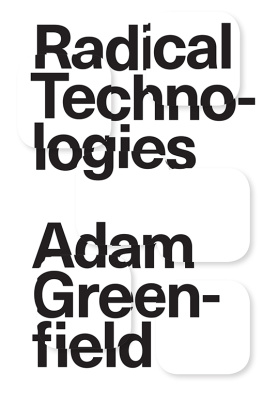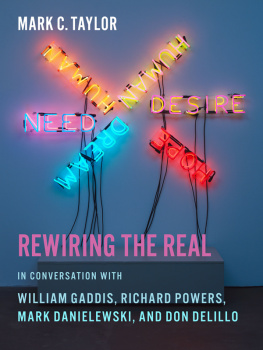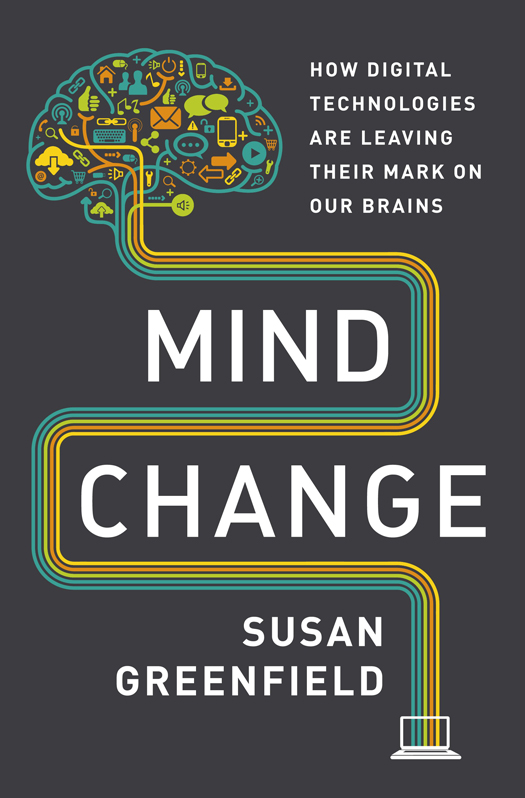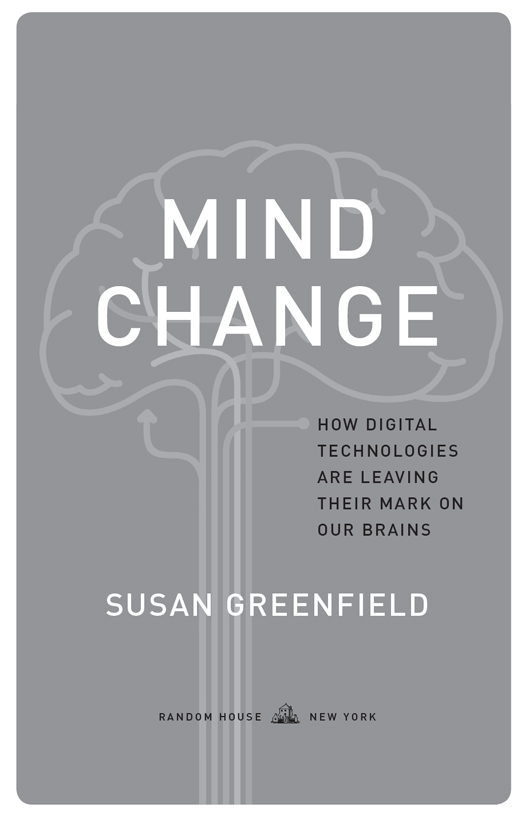Susan Greenfield - Mind Change: How Digital Technologies Are Leaving Their Mark on Our Brains
Here you can read online Susan Greenfield - Mind Change: How Digital Technologies Are Leaving Their Mark on Our Brains full text of the book (entire story) in english for free. Download pdf and epub, get meaning, cover and reviews about this ebook. year: 2015, publisher: Random House, genre: Religion. Description of the work, (preface) as well as reviews are available. Best literature library LitArk.com created for fans of good reading and offers a wide selection of genres:
Romance novel
Science fiction
Adventure
Detective
Science
History
Home and family
Prose
Art
Politics
Computer
Non-fiction
Religion
Business
Children
Humor
Choose a favorite category and find really read worthwhile books. Enjoy immersion in the world of imagination, feel the emotions of the characters or learn something new for yourself, make an fascinating discovery.

- Book:Mind Change: How Digital Technologies Are Leaving Their Mark on Our Brains
- Author:
- Publisher:Random House
- Genre:
- Year:2015
- Rating:5 / 5
- Favourites:Add to favourites
- Your mark:
Mind Change: How Digital Technologies Are Leaving Their Mark on Our Brains: summary, description and annotation
We offer to read an annotation, description, summary or preface (depends on what the author of the book "Mind Change: How Digital Technologies Are Leaving Their Mark on Our Brains" wrote himself). If you haven't found the necessary information about the book — write in the comments, we will try to find it.
Now renowned neuroscientist Susan Greenfieldknown in the United Kingdom for challenging entrenched conventional viewsbrings together a range of scientific studies, news events, and cultural criticism to create an incisive snapshot of the global now. Disputing the assumption that our technologies are harmless tools, Greenfield explores whether incessant exposure to social media sites, search engines, and videogames is capable of rewiring our brains, and whether the minds of people born before and after the advent of the Internet differ.
Stressing the impact on Digital Nativesthose whove never known a world without the InternetGreenfield exposes how neuronal networking may be affected by unprecedented bombardments of audiovisual stimuli, how gaming can shape a chemical landscape in the brain similar to that in gambling addicts, how surfing the Net risks placing a premium on information rather than on deep knowledge and understanding, and how excessive use of social networking sites limits the maturation of empathy and identity.
But Mind Change also delves into the potential benefits of our digital lifestyle. Sifting through the cocktail of not only threat but opportunity these technologies afford, Greenfield explores how gaming enhances vision and motor control, how touch tablets aid students with developmental disabilities, and how political clicktivism foments positive change.
In a world where adults spend ten hours a day online, and where tablets are the common means by which children learn and play, Mind Change reveals as never before the complex physiological, social, and cultural ramifications of living in the digital age. A book that will be to the Internet what An Inconvenient Truth was to global warming, Mind Change is provocative, alarming, and a call to action to ensure a future in which technology fostersnot frustratesdeep thinking, creativity, and true fulfillment.
Praise for Mind Change
This is just the book we need now as we proceed to absorb fresh digital innovations: a scientific review of their effects on the brain and what they mean for our minds. Mind Change clearly presents to lay readers the latest experimental findings as Susan Greenfield brings to the digital revolution just the right level of skepticism and curiosity. Neither a naysayer nor an enthusiast, she is a sober, reliable, and engaging voice on screen experience, telling us what happens inside our heads each time we log on, connect, play, and emote.Mark Bauerlein, author of The Dumbest Generation: How the Digital Age Stupefies Young Americans and Jeopardizes Our Future (Or, Dont Trust Anyone Under 30)
Greenfields Mind Change . . . proposes that global climate change can serve as a useful metaphor for how human mindsour inner environmentsare, in her view, being recklessly altered by digital technologies. . . . Mind Change is an important presentation of an uncomfortable minority position.Jaron Lanier, Nature
Greenfield is a lucid and thorough communicator, and this book is highly accessible to those with no knowledge of neuroscience. . . . That I kept being distracted from my reading to check Facebook was less a reflection on the quality of the book than a sobering lesson in how relevant these issues are.The Independent (U.K.)
Susan Greenfield: author's other books
Who wrote Mind Change: How Digital Technologies Are Leaving Their Mark on Our Brains? Find out the surname, the name of the author of the book and a list of all author's works by series.


